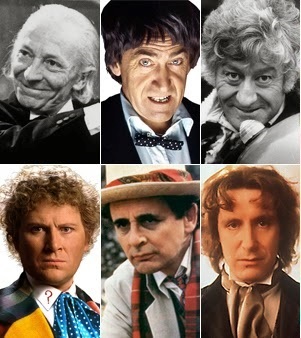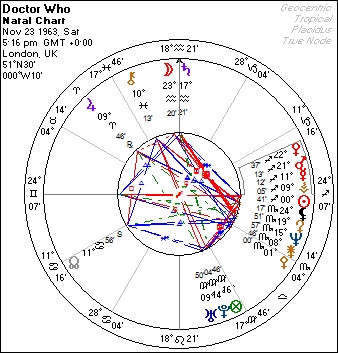advertisements
Christina's Blog
The Oxford Astrologer
Culture, Sociey and Astrology
from Mythopia
I don't subscribe to any particular school of astrology, but I do make a point of keeping up to date. I choose the ideas that work when I apply them to a real chart and real life and throw out the ones that turn out to be, well, wishful.
... NeptuneCafe presents ...
Christina Rodenbeck, based in the ancient centre of learning, Oxford, examines living mythology through the lens of astrology. She likes to challenge prevailing orthodoxy, champion
originality and enchant with a good story. She is available for personal consultation. Read more of what she has to say at The Oxford Astrologer.
Doctor Who, British Identity and the Chiron Return
The US Fiscal Deficit - is the mother of all debts. Mercury and Saturn combine to stall discussions along with the UR-PL square and eclipses
The Dwarf Planet Ceres - is profoundly connected to nurturing, parenting, fertility: the cycle of birth, growth, death and rebirth
UK Nixes Syrian Invasion - PM Cameron Page's intention to join the U.S. is thwarted by Parliament. Here's how the UK chart is shaping up
Prince George - his Cancer Sun, chart with Scorpio Ascendant and 8th house planets explained. Plus the royal pattern of 10th house planets.-
Turkey's Identity Crisis: As Saturn crosses Turkey's Scorpio Sun, the nation and its neighbors wonder if it's a secular or Islamic state...
Water Grand Trine - This isn't just any old Grand Trine: it's between three heavy-duty planets, Jupiter in Cancer, Saturn in Scorpio and Neptune in its own sign Pisces.
Oxford Archives
If you want to get a handle on a certain well known asteroid/planetoid/...er... comet... er ... thingie whizzing around between Saturn and Uranus right now, then you might do well to watch a certain well known British children's TV show.
Here in Blighty we have been besieged by the BBC's publicity department for weeks leading up to the 50th anniversary of Doctor Who, the longest-running science-fiction show on TV. It features mysterious person, known only as the Doctor, who travels through both time and space in a blue policeman's box, the Tardis, which is "bigger on the inside". In his travels, the Doctor picks up companions -- oddly enough usually young and good-looking ones -- fights aliens, and saves the odd galaxy or two. But most of the time, he seems to be here on Earth, a place which is dear to him apparently because we humans are so super. The really clever thing about the Doctor is that he can't die, instead he regenerates, which means that every now and then the actor who plays him is replaced.
Doctor Who was born in 1963. This year, 2013, we are going to meet the 12th doctor, when actor Matt Smith, who has been playing him since 2010 leaves to replaced by Peter Capaldi. Pretty much everyone in Britain under the age of 60 has "their doctor", the one who epitomises Whoishness for them.
It's hard to overstate the importance of the character of Doctor Who in the national psyche. Almost no one else unites the country across class -- although I feel the Doctor spends far too much time in Cardiff and London. Even if you never watch the show, you'll know what the Tardis is and you'll recognise the theme music created by Delia Derbyshire.
But who or what is the character? And how curious that the show is having a Chiron Return now, since Chiron is, of course, a doctor himself. But they have more in common than that. Doctor Who, no matter which actor is playing him, is a maverick. He is his own person, answerable to no one. This also describes Chiron. One of the features of Chiron is his weaving, wandering orbit as he travels through space, wandering between Uranus, Saturn and Mars. In each sign of the Zodiac, Chiron also seems to change utterly -- indeed to regenerate.
Since the show began, Chiron has travelled through each of the 12 signs of the Zodiac, and this winter he is returning to 10°, the place where he was when Dr Who was born. Here is a little chart of the Doctors and the Chiron signs at the time. Just a bit of fun.
Pisces William Hartnell (1963–1966)
Pisces Patrick Troughton (1966–1969)
Aries Jon Pertwee (1970–1974)
Aries/Taurus Tom Baker (1974–1981)
Taurus Peter Davison (1981–1984)
Gemini Colin Baker (1984–1986)
Gemni-early Cancer Sylvester McCoy (1987–1989, 1996)
Nothing for Leo/Virgo
Libra Paul McGann (1996)
Nothing for Scorpio/Sag
Capricorn Christopher Eccleston (2005)
Aquarius David Tennant (2005–2010)
Aquarius/Pisces Matt Smith (2010–Present)
Pisces John Hurt (2013) in the Scorpio/Sag hiatus.
Pisces Peter Capaldi -- yet to come.
The show that aired on Saturday reunited three iterations of the Doctor -- the father, the son and the holy ghost perhaps -- and allowed them, working together, to redeem a terrible crime the Doctor committed in the past. In fact he had destroyed a galaxy in order to stop a war, but the three versions of himself go back in time and freeze an entire planet in time in order to preserve it. So the story is about healing.
Wounding and healing, scar-tissue: this is the realm of Chiron. But especially of Chiron in Pisces, the sign of redemption.
Doctor Who inevitably reflects the spirit of the times in which it's made, so early episodes were a response to WW2 and the Cold War, but also to colonialism. The Doctor of the noughties is a war criminal. He arrived on our screens soon after Britain's post-colonial colonial adventures in Iraq and Afghanistan were launched. We learn through the series that he made a fatal mistake and that he is the one surviving member of his species, the rest having perished in a war. We suspect that the Doctor had his finger on the button of a weapon of mass destruction. He is haunted by loneliness and guilt.
In 2013, he is able to go back in time and change that. If only it were so easy for the rest of us.
It might be too much to claim that the Doctor is an embodiment of Britain's conscience, but a comparison of the two charts is intriguing.
First of all, you can see the Nodes of the Doctor's chart align perfectly with the MC/IC axis of the UK chart and the UK Sun. There is destiny here. The Doctor's MC/Saturn aligns with the UK Venus -- a long, long love affaire that keeps Doctor Who at the top of the charts.
Doctor Who has a major stellium in Sagittarius -- as you would expect from a traveller. The Sun is at 0° too, which exaggerates the Sagittarianess. This stellium falls in the UK third house of communications, with the Sun on the cusp. And there is the UK Chiron aligning with the Doctor's Sun.
Is Doctor Who so popular here because it allows us to examine national wounds through the lens of art. You can see that Venus is involved here and Mars and Mercury. So often in Britain, it is children's books that truly get to the soul of the nation -- Alice, the Lion, Harry Potter. This is reflected in the Chiron-Mercury conjunction in the third house of writing, but also both Pluto (penetrating truth and cruelty) and Venus (art) in the fifth house of children.
Is The Doctor's exile from home an iteration of the exile so many English children have suffered at boarding school? Or the exile of going to, say Helmand province as a soldier? In this country, you can join the army at the age of 16. (The UK is the only country in Europe or on the UN Security Council to allow this.) If you are sent away, you must harden your heart and stiffen that upper lip.
At the top of the Doctor Who chart is that Saturn/Moon conjunction in Aquarius (the sign of science). This aspect is about compartmentalising your emotions, stopping them before they become too much. Of course, this same ability to compartmentalise makes warriors. That Saturn/MC lines up with the UK venus (art) in the 5th house of entertainment – a show about science, and Saturn exactly trines Neptune, a show about science fiction.
Just like the centaur Chiron, the Doctor chooses to be an outcast from his own people and make his home among strangers whom he teaches to look at the world without cynicism.
The Doctor's 11th house Jupiter (large audiences, popular appeal) falls exactly on the UK Descendant - each of us feels we have a one-to-one relationship with the Doctor. That one to one relationships is, as often as not with an actor with an Aries Sun. You'd think it might be a Sag if you only had the Doctor's chart but you can see that the UK chart has Aries on the Descendant.
Finally, the planet of illusion, glamour and film-making, Neptune was having it's once-in-every-160-years Return for the UK in the year that the Doctor was made (and the Beatles cut their first LP).
I am a bit fuzzy about early Doctor Who, so I'd be interested to hear what you think especially vis a vis the changing face of the Doctor and what this says about the times.





